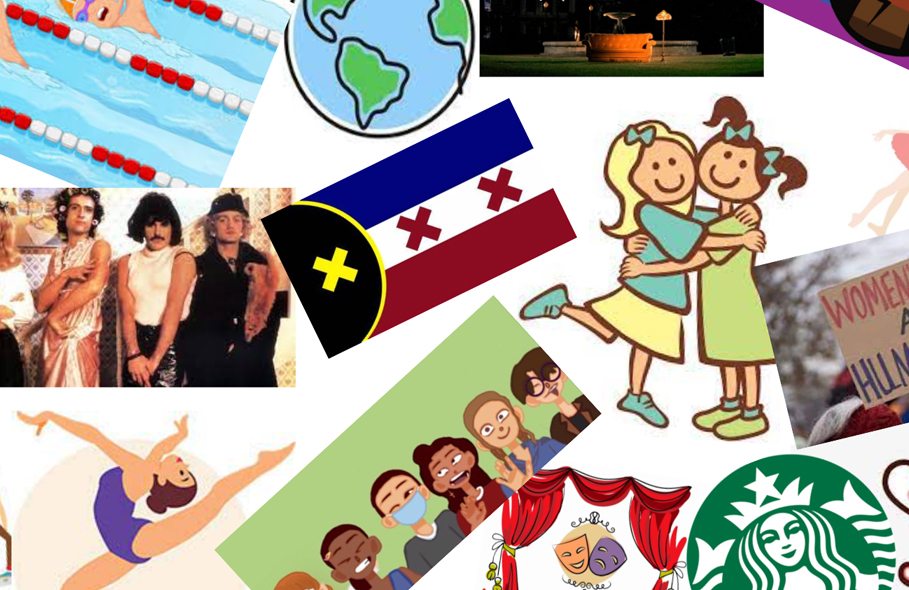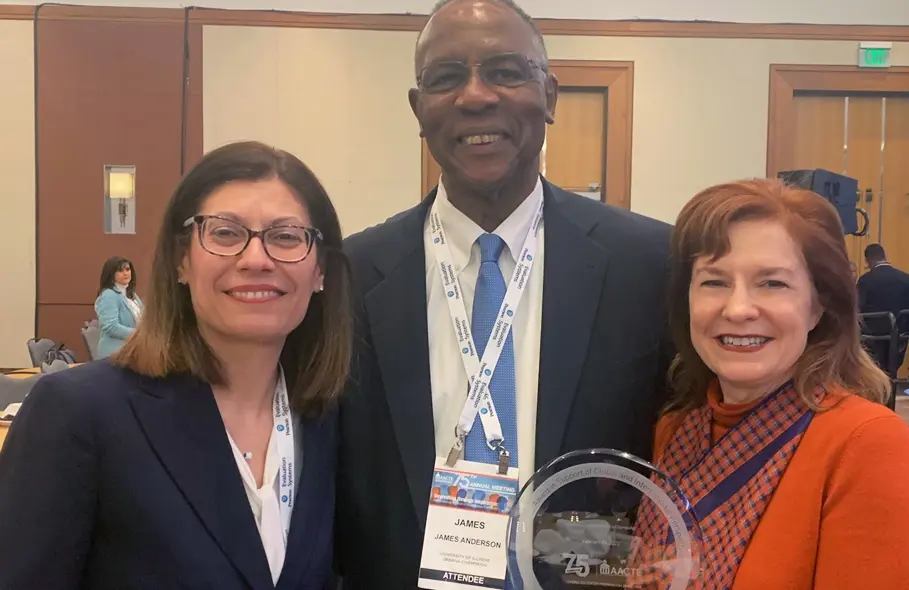Helping Middle Schoolers Become Global Citizens
by Tom Hanlon / Aug 24, 2021

The launch of the College of Education’s I-Global program was a complete success for all 195 participants—middle school students from 11 countries, preservice teachers, and graduate students.
Janine Solberg has experienced a lot in her 30 years of teaching.
But I-Global, a program launched this past spring by the College of Education and supported by a U.S. Department of Education Title VI grant through the Center for Global Studies, gave her a brand-new experience: simultaneously teaching middle schoolers across the world.
“I had one chapter of students here in Westchester [a suburb of Chicago], which is a stone’s throw from my house, and the next one was in northern India,” says Solberg, now a doctoral student in Education Policy, Organization and Leadership.
The students in India were extremely courteous, always saying “Yes mum Janine, mum yes mum,” Solberg recounts. “It was eye-opening to see how middle schoolers in India or China are used to doing school and how much they talk versus how much the U.S. kids talk.” Students in China, she says, are not as used to an interactive, discussion-based platform as are U.S. students. “But they did a beautiful job in joining me in conversation about the kinds of understandings we share across cultures and the kinds we need to figure out how to share.”
Sustainable Development Goals
That cultural sharing and understanding is at the heart of I-Global, which is designed to help middle schoolers from around the world become global citizens and to give preservice teachers the opportunity to teach students from various cultures. The curriculum is based on the United Nations’ Sustainable Development Goals. Students work on projects within their own group, then share online with I-Global students from other countries. The chapters are led by preservice teachers from the College.
“We wanted the students to know what the sustainable development goals are,” says Allison Witt, director of International Programs and of I-Global. “We want them to understand that when you’re trying to achieve something on a global scale, you have to take into account different cultures, and that everyone will approach the goal from a different cultural perspective. If they get that from I-Global, that’s great. We’re done.”
During the spring and summer, students from 11 countries around the world participated, including chapters from China, Spain, France, Angola, Indonesia, Chile, and India. But that number is expected to rise.
“As we relaunch in fall, we want to go a lot bigger,” Witt says. “We’re going to have more countries involved, and more American schools as well.”
That means more students—and preservice teachers—will be experiencing new things, just as Solberg, the veteran educator, has.
And that’s the whole point.
"Sweet Moments"
“The kids love it!” Witt says. “And they are so lovely with each other; there’s been no bullying, no inappropriate comments, no pushing on political issues, no bad behavior of any kind. And they want to interact directly with each other. I thought they’d be nervous to talk to people from other cultures, but they’re not. They want more sessions where they can all talk together.”
The students, Witt says, help each other with language barriers. “There have been some sweet moments where someone says ‘I also speak Spanish or I also speak Arabic, so if someone needs help, let me know.’ The American kids who only speak English are realizing they’re in the minority.”
Students initially interacted through platforms such as Flipgrid (communicating through short videos) and Moodle (posting project information and receiving comments from others). But, Solberg says, instructors quickly realized the kids needed and wanted more.
So they tried breakout rooms—placing students from three different countries in the same room—to discuss topics. “We’d have kids from Indonesia and China and Brazil and from the US and Peru and India together on a topic,” Solberg says. “They’d introduce, say, food in India, and they’d share food information in their breakout rooms.”
It was a big hit.
“This fall, we’re going to have meetings that incorporate that on a regular basis,” she says.
Besides multilingual middle schoolers helping to translate, the College had international graduate students on translation duties as well. For example, a Chinese graduate student was assigned to the chapters from China. Same for the chapters from India. “We always had someone who could bridge the gap,” Solberg says.
Surpassed Expectations
In Solberg’s eyes, I-Global more than surpassed her hopes for the program. “First, preservice teachers gained the experience of thinking about how students are different,” she says. “One of the first things you have to learn as a teacher is your students are all different and you have to respond to each of them individually for what they need. What better way to do this than to see students from all sorts of places with all sorts of differences? And the preservice teachers were also exposed to teaching with technology, which is very valuable.”
Preservice teachers weren’t the only ones to benefit.
“We completely achieved the goal we had for the students, and they surpassed my expectations,” Solberg says. “The overall shared global experience and letting young people show us their plans for the future was absolutely inspiring. I think the experience opened their eyes to a bigger world, and also to their own personal goals. They will hopefully make decisions going forward that will benefit not only themselves, but the rest of the world, because they’ve started thinking about things on this global citizenship level.”
Middle schoolers tend to share a common conviction, Solberg says. “Students are so interested in and confident that they can and will fix the world.”
I-Global is a vital stepping stone for them in doing so.
